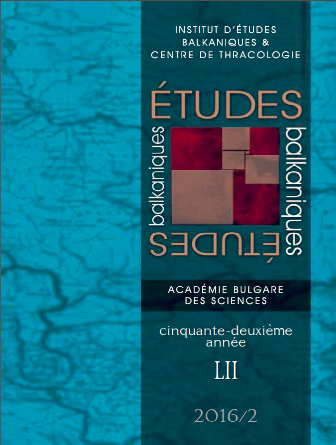TYPES OF EUROSCEPTICISM: THE CASE OF BULGARIA
TYPES OF EUROSCEPTICISM: THE CASE OF BULGARIA
Author(s): Simeon MitropolitskiSubject(s): Politics / Political Sciences, Politics, History, Comparative history, Political history, EU-Approach / EU-Accession / EU-Development
Published by: Институт за балканистика с Център по тракология - Българска академия на науките
Keywords: European Union; Bulgaria; Euroscepticism; Politics;
Summary/Abstract: The euroscepticism has gradually moved from political margins into the mainstream of European politics. The process of negotiation and ratification of the Maastricht Treaty, the financial crisis within the Eurozone and the security issues related to the free movement of people, to mention just few topics, galvanize public debates as never before, leaving fewer stones of optimistic EU integration unturned. Focusing mainly on West European EU members, the recent literature links the phenomenon of euroscepticism to social responses to political, economic and security issues that become possible with EU integration. This study delves into this phenomenon by using the case of Bulgaria, one of the last countries who joined the EU. Despite its recent membership, Bulgaria is far from immune to euroscepticism. Most types of euroscepticism are found there, either in their soft and hard variety. Despite this overlapping, there is some important divergence between Bulgaria and the older EU members. Bulgarian euroscepticism is not just limited to responses to political, economic and security issues. It extends to identity issues having to do with social structures and new lifestyles.
Journal: Études balkaniques
- Issue Year: 2016
- Issue No: 2
- Page Range: 185-204
- Page Count: 20
- Language: English
- Content File-PDF

